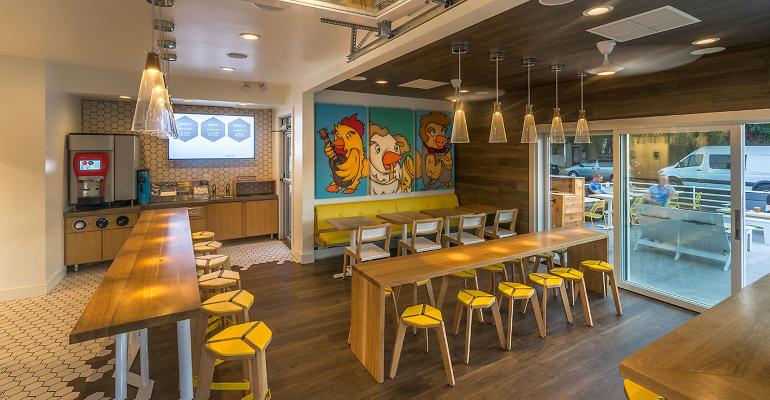As the Colorado restaurant industry expands and adapts to diners’ evolving palates, it’s become all about ethnic food. Denver’s population has grown by over 100,000 people over the last seven years, according to The Denver Post, so it is no surprise that the influx of people into the city from around the country with varied backgrounds, taste preferences and exposure to myriad dining spices and recipes has had a tangible effect on our dining scene. We have become much more of a cultural and culinary melting pot. Our level of expectation and appreciation of an array of experiences is a welcome departure from the American foods that have been a staple of the Denver dining scene for decades.
New restaurants such as Alon Shaya’s Safta, Tyson Cole’s Uchi, Daniel Asher’s Ash’ Kara, Ambli (Indian/Latin fusion) and the Japanese mainland barbeque restaurant Gyu Kaku are just a few examples of how the Denver food scene is evolving and blending cuisines from diverse cultures. Their success in this market is the sign that Denver consumers are ready to embrace foods once unfamiliar and it signals to chefs that taking creative risks in this city has financial and creative rewards.
Upscale/gourmet fast-casual (or quick-service) restaurants are a growing and more profitable, streamlined business model for restaurant entrepreneurs. They require smaller spaces, less labor, quicker turns of tables, affordable price points and the flexibility for take-out or delivery. Given the pace of contemporary American life for working parents and highly scheduled kids, there is an obvious appeal here. The labor headwinds challenging restauranteurs not only include the passing of Amendment 70, which gradually raises the minimum wage annually until it reaches $12 per hour in January 2020, but also the extremely tight labor pool. In February, the unemployment rate in Denver County was 3.4% versus the U.S. national average of 3.8%. These numbers indicate that employers need to be competitive with pay and benefits in order to attract and retain talent. This appears to be particularly so in the food industry as there are numerous options for servers as well as skilled kitchen staff.
Technology, as in all facets of contemporary life, is becoming an increasingly significant component of some food operations. Wait staff are able to record orders and compute the check totals on iPhones or iPads (hence the extinction of the cashier). Robot servers as baristas are not far away. Witness Birdcall, a Denver-born restaurant from co-owners Jean-Phillipe Failyau and Peter Newlin, which serves locally sourced chicken. This is a specific, local example of a restaurant streamlining its total personnel requirements in the name of efficiency, profitability and longevity in order to negotiate these headwinds. There are no waiters at Birdcall, instead customers order from kiosks. Minimizing wait staff has allowed Birdcall, now operating three Denver locations, to face the challenges to restaurant profit margins head on and evolve in challenging markets.
The emergence and proliferation of the modern American food hall is both a local and national phenomenon. This evolution of the concept that was once considered a regional mall niche (the dreaded food but prolific food court) is now a prevalent trend in the restaurant/retail real estate landscape. There already have been seven new food/market halls announced for 2019 including: Broadway Market, Avanti’s second location on the Pearl Street Mall in Boulder, two new Golden based concepts, Golden Mill Market and Tributary Market & Drinkery, Edgewater Public Market, Junction Gourmet Pavilion at the Colorado Center development and Denver Street Eats in the new Great Hall of Denver International Airport. There most likely will be additional concepts announced this year. But what makes food halls so attractive to tenants and landlords?
From a tenant perspective, this model gives the operators the chance to enter the market with significantly less capital outlay and risk than if they were opening even a small restaurant. They can commit to a small footprint and share in a kitchen area, restroom and seating that are common spaces in these concepts. These common areas often are expensive elements to build in a traditional restaurant, but in a food hall setting many of these items are part of what the landlord is delivering to the operator as a part of premises. This also gives the operators the initial breathing room to launch their business without immediate cash-flow pressure. Another advantage is the built-in density and critical mass in these projects. Generally there are multiple restaurants, shops and small markets operating within these food halls that are considered an attraction in the aggregate.
From a landlord perspective, this is an opportunity to lease space to a conceptually riskier, perhaps unproved, concept without having to take on too much risk. The spaces are considerably easier and less expensive to release in the chance that one operator shuts its doors or moves. Food halls also offer a creative way for landlords to release challenging, vacant retail space. Happy Canyon Market, anchored by Tony’s Meats and Market, is taking over a vacant Safeway space at 4950 E. Hampden. The historic Mill building in Golden, formerly a livestock feed store, will become the anticipated Golden Mill. Food halls also drive business. They can add the needed jolt to bring tired shopping centers back to life and can help drive business to neighboring concepts at the same time.














